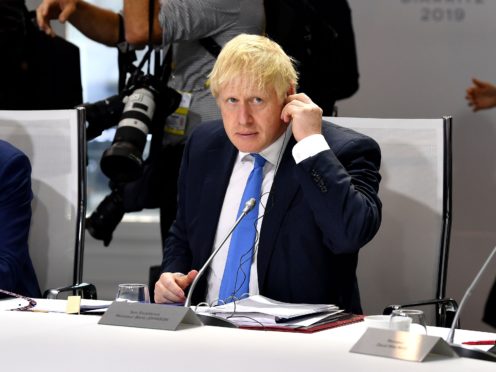Boris Johnson has been urged to take action on TV licences for over-75s after the Prime Minister called on the BBC to “cough up” and fund the axed, universal entitlement.
Caroline Abrahams, charity director at Age UK, said the Government as well as the BBC will be held “responsible for finding a resolution.”
She said in a letter to the Prime Minister: “We agree with you that free TV licences for over-75s should continue but we very much doubt that asking the BBC to ‘cough up’ is likely to be a realistic solution, since the Corporation is adamant that it cannot afford the £500 million required…

“We would very much hope that the Corporation and your Government will sit down together now and discuss a way forward that allows our over-75s to retain their free licences.”
The Tory election manifesto in 2017 pledged to protect free licences.
But the benefit will be restricted to those on pension credit from June, with the BBC saying it cannot afford to take on the financial burden from the Government.
The move will strip 3.7 million pensioners of their free licence.
Dame Helen Mirren, Sir Lenny Henry and Len Goodman are among the celebrities who have spoken out on the issue.

Speaking recently to reporters at the G7 summit in Biarritz, Mr Johnson said: “The BBC received a settlement that was conditional upon their paying for TV licences for the over-75s.
“They should cough up.”
The free TV licence was introduced in 2000, but the BBC agreed to take on responsibility for deciding future policy and funding for the scheme as part of the charter agreement hammered out in 2015.
Those found to be ineligible for a free licence will have to pay £154.50 a year for a colour television and £52 a year for a black and white television.
A BBC spokeswoman said: “After an extensive consultation, we’ve reached the fairest decision we can in funding free TV licences for the poorest older pensioners, while protecting BBC services.
“If the BBC funded all TV licences for the over-75s, it would mean the closure of BBC Two, BBC Four, the BBC News Channel, the BBC Scotland channel, Radio 5 Live and several local radio stations.
“This policy will not come into force until June 2020, which gives us time to get the implementation right, including putting in place extra support to help people where they need it.”
